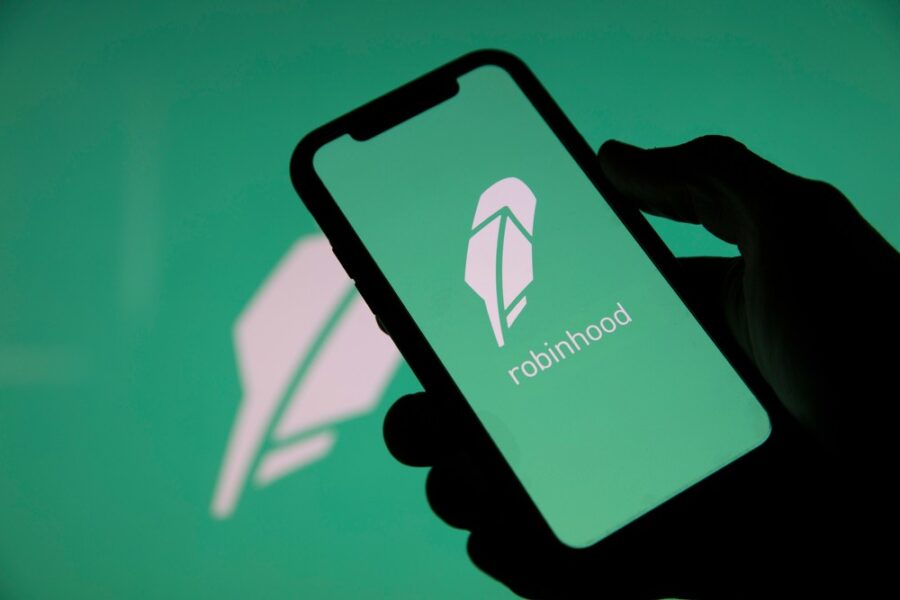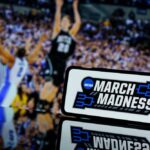Prediction markets drive US$200 million surge for Robinhood

Investment firm Piper Sandler has reported that Robinhood’s push into prediction markets is paying off, with sports betting and event contracts already generating about US$200 million for the trading platform.
Piper Sandler reiterated its rating on Robinhood and boosted its price target to US$140 from US$120, suggesting a 12% upside.
In a note to clients, Piper Sandler analyst Patrick Moley said that the prediction market sector was a big opportunity for Robinhood.
A key driver is Robinhood’s partnership with Kalshi, a federally regulated event-contracts exchange. Kalshi has seen record trading in September, thanks to demand for NFL and NCAA wagers. Under the agreement, Robinhood and Kalshi split revenue evenly, with each contract carrying a US$0.02 fee.
Regulatory scrutiny, however, could complicate growth. Several state regulators have attempted to block Kalshi from offering sports contracts, arguing they fall under gaming laws.
Kalshi has challenged the rulings, setting up potential legal battles over the scope of prediction markets in the US. Despite the uncertainty, Wall Street remains bullish.
According to financial data provider LSEG, roughly two-thirds of the 23 analysts covering Robinhood rate the stock a buy or strong buy. Shares edged up 0.43% in premarket trading on Tuesday and are up more than 200% year-to-date.
With betting activity surging during football season, analysts suggest Robinhood could see further upside if regulators allow sports-linked contracts to continue.
Verticals:
Sectors:
Topics:
Dig Deeper
The Backstory
How Robinhood’s event-contract bet took shape
Robinhood’s push into prediction markets began in earnest around March Madness, when the company rolled out a new “prediction markets hub” inside its app via its CFTC-regulated partner Kalshi. The hub, offered through Robinhood’s derivatives subsidiary, let eligible users trade yes-or-no contracts tied to outcomes like NCAA basketball games, positioning the products as market-style instruments rather than sportsbook wagers. The launch, which Robinhood framed as compliant with federal oversight, was detailed in the company’s March Madness debut and underscored management’s broader strategy to deepen engagement across news, sports and culture.
Even before the college tournament, the effort drew scrutiny. A planned Super Bowl rollout was halted after the Commodity Futures Trading Commission intervened, according to Robinhood’s own account of the episode. That early check foreshadowed the regulatory crosscurrents that have since defined the company’s ambitions in event contracts.
State pushback turns Massachusetts into a test case
Massachusetts quickly emerged as a flashpoint. The state allows mobile sports betting but bars wagers on in-state college teams. Robinhood’s Kalshi-powered contracts, overseen federally by the CFTC, appeared to thread that needle, creating a scenario where residents could trade on Boston College football outcomes despite the state ban. Officials took notice. The state’s top securities regulator opened a probe into Robinhood’s college sports markets, seeking data on how many accounts traded the contracts. The escalating standoff was captured in coverage of the Massachusetts investigation and further highlighted by reporting on possible circumvention of the state college betting ban.
National attention followed. Reuters reported that Secretary of State Bill Galvin subpoenaed Robinhood for information tied to March Madness trading activity, underscoring the gray zone between federally regulated event contracts and state-regulated sports wagering. The details in Reuters’ account of the Massachusetts probe added pressure on Robinhood to defend both its compliance posture and the consumer purpose of the products.
Football season accelerates the strategy
Robinhood leaned into football as a catalyst. Ahead of kickoff, the company launched tradable markets tied to the NFL and college football, initially for the first two weeks with an eye to weekly markets thereafter. The products mirrored stock trading mechanics, letting buyers and sellers set prices, a distinction executives argued separated them from traditional sportsbooks. The ramp was chronicled in coverage of the NFL-season launch, which also noted that rival Kalshi planned its own football markets.
That seasonal push coincided with surging demand across event contracts, particularly in football. According to analysts and industry data cited in reporting on Robinhood’s US$200 million prediction-market windfall, Kalshi saw record trading in September as NFL and NCAA activity spiked. The momentum set up a classic race: engagement and revenue growth on one side, legal and regulatory friction on the other.
Wall Street cheers, but the rulebook is still being written
The numbers grabbed investors’ attention. Piper Sandler boosted its price target on Robinhood to $140 and highlighted roughly $200 million in new revenue tied to sports betting and event contracts, according to analyst commentary on the surge. With about two-thirds of analysts rating the stock a buy or strong buy and shares up more than 200% year to date at the time, Wall Street signaled confidence that the product line could be a durable growth engine if regulators allow it to scale.
Yet the underlying market structure remains unsettled. Several states have tried to block Kalshi’s sports contracts as unlawful gaming, a position Kalshi is contesting. That conflict goes to the heart of whether event contracts are financial hedging tools or sports bets by another name. The outcome will shape costs, compliance burdens and product design across the sector. As an example of the evolving product landscape, Kalshi has added props and parlays while legal questions loom, as reported by Front Office Sports in its look at Kalshi’s expansion amid uncertainty.
Federal oversight and potential conflicts in Washington
The CFTC’s stance is pivotal. The agency regulates event contracts and has already stepped in on high-profile sports launches. Institutional views in Washington are still forming, and leadership could influence how aggressively the commission draws lines between permissible hedging and prohibited gaming. The debate sharpened during a June 10 Senate Agriculture Committee hearing on a CFTC nomination, where lawmakers probed ties between the nominee and Kalshi. As reported on the nomination hearing, the nominee, a former CFTC commissioner and current Kalshi director, pledged to divest but faced questions about the appearance of conflicts and the broader role of event contracts in markets.
The official CFTC portal provides background on the agency’s remit, orders and advisory materials, which have been central to prior decisions on election and sports-related contracts. For context, see the CFTC’s website and the Senate Agriculture Committee’s hearing page, as well as the nominee’s prepared testimony.
Together, these threads show why Robinhood’s prediction markets sit at the juncture of market innovation and regulatory boundaries. The firm’s partnership model with Kalshi, the state-federal power dynamic, and shifting leadership at the CFTC will determine whether football-fueled momentum turns into a lasting line of business or a tightly constrained niche.







